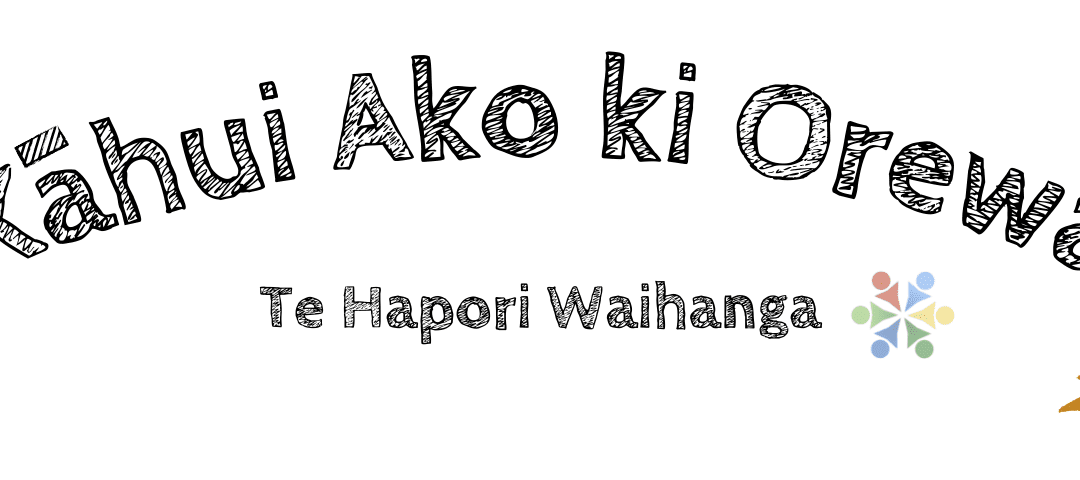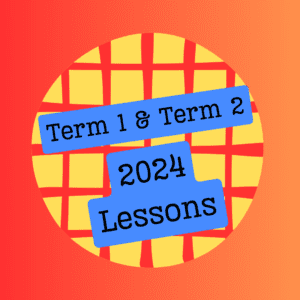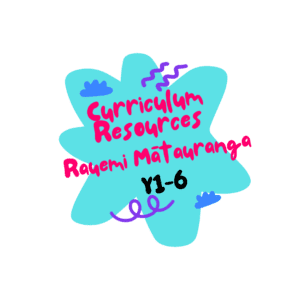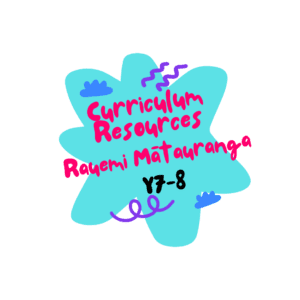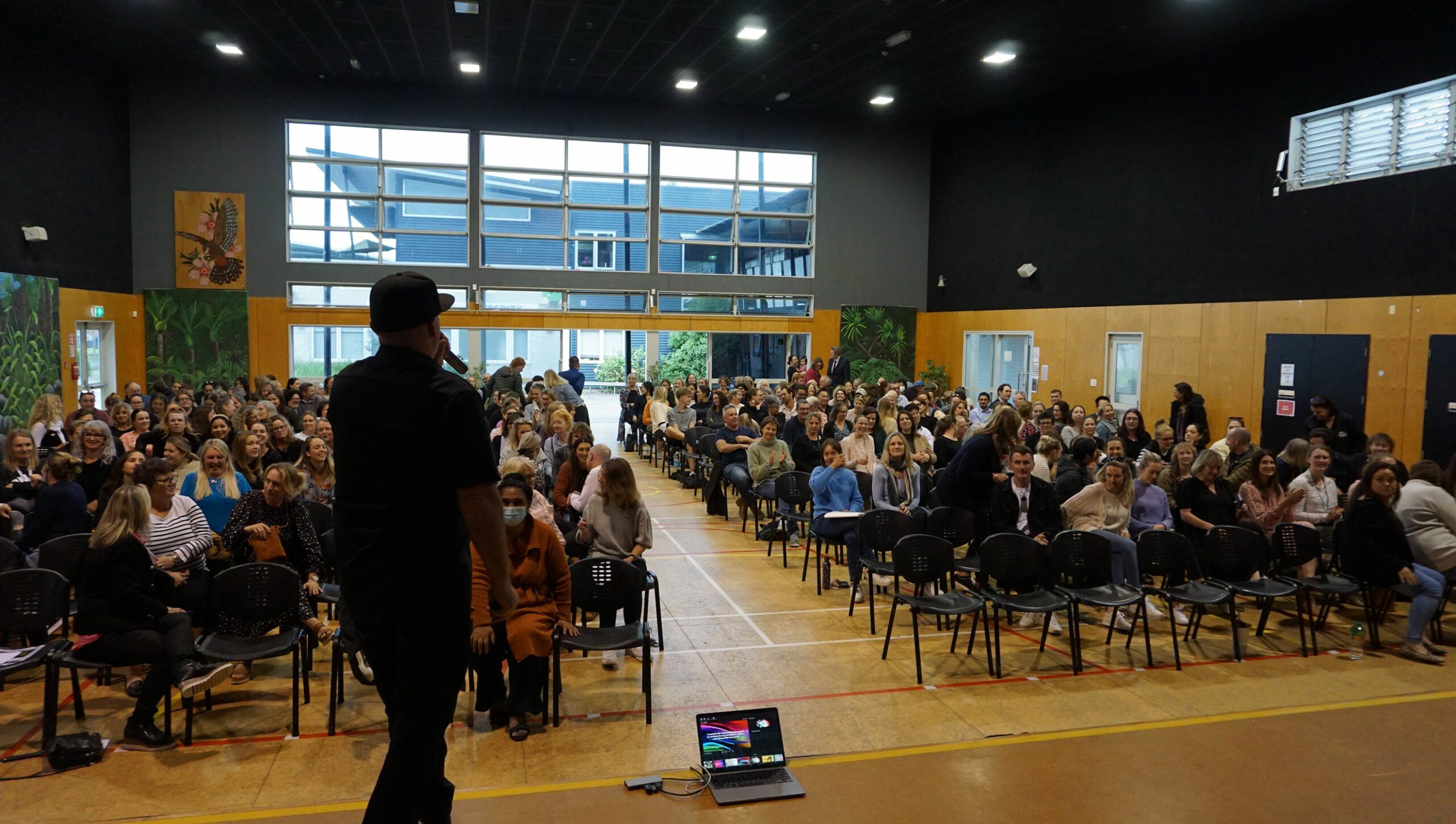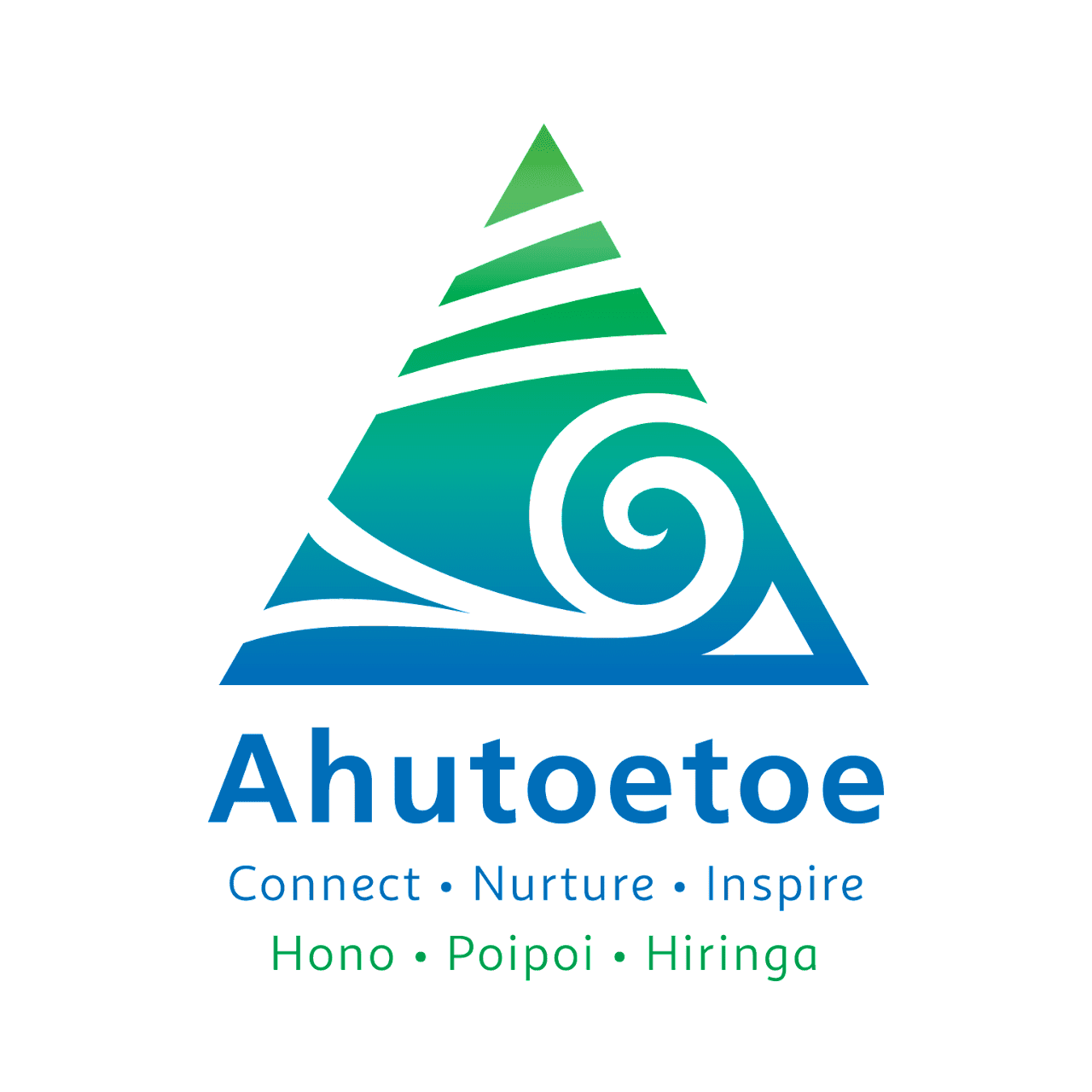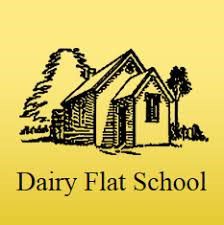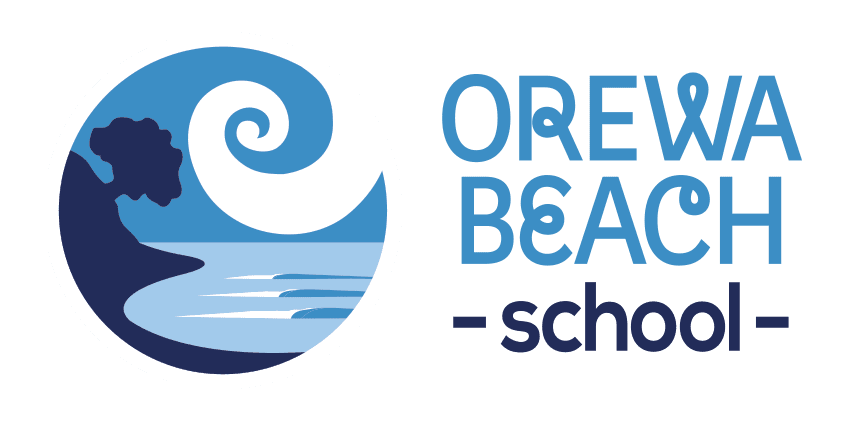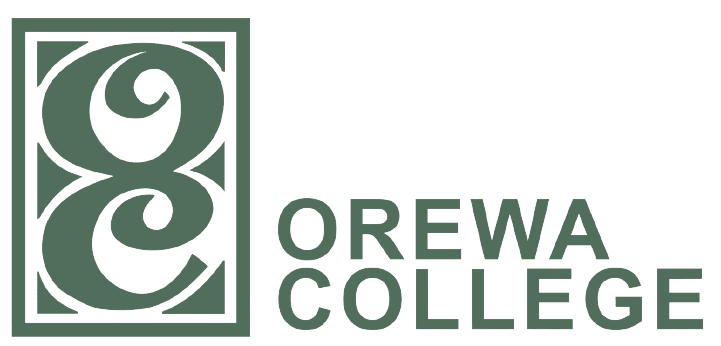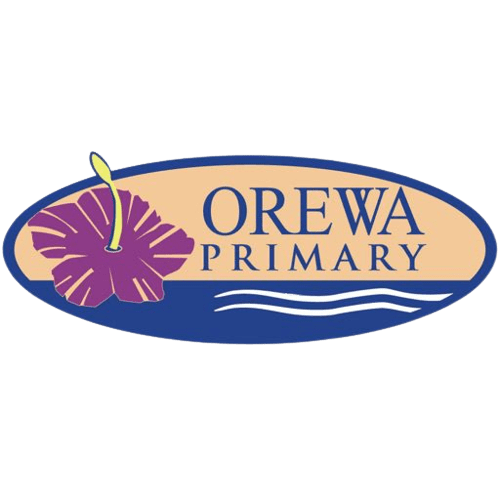Rāmere, te 5 o te Maehe 2023
Orewarewa whenua, puāwai māhuri
On the fertile ground of Orewa, the sapling blooms
Competition – Each week we will have a competition. One lucky winner will receive a $20 Millie’s Coffee voucher! It’s simple, just email your answer to [email protected]
Congratulations to Nick Edwards this week’s winner!
This Week’s Question/Pātai o te Wiki: What does the kīwaha/colloquium
“Hoia tō waka” translate to?
Have something to share? Get in contact with one of our Across School Leaders – we would love to hear from you!
[email protected] Te ao Māori
[email protected] Hauora
[email protected] Future Ready
[email protected] 21st Century Learning

The Curriculum Refresh is probably the biggest thing happening in primary and secondary education right now.
On Monday 24th April (First day of Term 2) the teachers and principals from Orewa Beach, Wainui and Dairy Flat Schools as well as some of the teachers from Nukumea school met to have a combined Teacher Only Day.

We looked at the Curriculum Refresh, and in particular Te Mātaiaho, the Curriculum Framework.
Our last curriculum was published in 2007. The Ministry of Education states that change is needed in order to ensure the
The New Zealand Curriculum:
• gives effect to Te Tiriti o Waitangi • is inclusive • clear about the learning that matters for our ākonga • is easy to use.
Many of the elements from the current 2007 New Zealand Curriculum will remain, but the refreshed curriculum is designed to ensure the learning journey is coherent, rich, and responsive to the needs of our ākonga.
We delved deep into Te Mātaiaho and had some very robust discussions around aspects of it.
A very popular activity was using Google Jam Boards to work in groups and then summarise an aspect of Te Mātaiaho. As participants discovered they could add images there became quite a bit of competition between groups!



It was great to have time to look at the new progression model and get our heads around the change that will see us move from using Levels to using Phases of Learning.
Lastly, participants had a chance to look at the Social Sciences (final), Mathematics and Statistics (draft) and English (draft) curriculums. Social Sciences in the final version so is ready to use in schools. Mathematics and Statistics is in it’s third draft and will be released in Term 3 along with English.

We appreciated the Ministry of Education giving us this day to grow our understanding of The Curriculum Framework, and our Principals for funding us the lovely lunch!


“GET IN THE GAME” LESSON WITH THE TECH INTERACTIVE
Computational Thinking – Yr5/6
“The Tech Interactive” offers a number of free online lesson plans for teaching digital technology skills, many of which are unplugged. https://www.thetech.org/ctlessons In keeping with the holiday and Easter theme, the class was given the task of designing a board game (in pairs) that they could take home and play over the holidays. The step-by-step guide through “The Tech Interactive” was brilliant to follow. Each lesson has an ambassador, who shares how the technology skills students are learning link to real-life situations. These are done through short videos that explain each step. It broke the tasks up into digital concepts, developing vocabulary and giving students a clear path to follow.
Students learned the concepts of abstraction, decomposition, pattern recognition and algorithms, using these steps to design their board games.

Step-by-step instructions for students.

Working in pairs meant ‘debugging’ became a natural part of the process as they designed their boards and considered their instructions. These included tweaks from the rough draft to the actual board design. Each student was then responsible for creating their own board game to take home, based on their shared rough draft. These needed to include any materials they needed for their game – money, special characters/tokens, cards etc. Once they had created their games, they had a go at playing their games with another student.


Before students took their games home to enjoy for the holidays, we had a feedback session on how their first go at playing their games had gone. We discussed debugging and what kind of changes students needed to make or had made to their game or rules while playing it. Some of their answers included : “We ran out of money – I realised I needed more money to make my game work.” “Being the hunter in my game was too easy – I had to change the rules to make it harder for him to catch the rabbit.” “We didn’t have enough ‘setbacks’ on the last line of our game, so you knew who would win before the end. So we added more.” One student then made the link to game updates online. It brought about insightful discussions about why games need updates and what the reasons could be for that. All round a fabulous way to end the term with some practical, hands-on learning!


Computational Thinking Digital Progressions
Designing and Developing Digital Outcomes Digital Progressions

Kāhui Ako School Boards Head to Te Herenga Waka o Orewa Marae

On a cold autumn night, our School Board/Poari Kura were warmly welcomed onto our local community marae Te Herenga Waka o Orewa in our first pōhiri for such a group. Prior attempts to run this kaupapa were thwarted by Covid-19 so it was great to finally get our board members there.
The kaupapa was to establish whanaungatanga between our kura at a governance level and the marae. Working together and establishing these relationships helps us honour Te Tīriti and to be able to walk together into the future.
Whaea Leeanne Wade led us onto the marae as our kaikaranga. On the paepae, Jason Irvine (Wainui School), Trevor Ruebens (Orewa College), Simon Koziaski (Orewa Primary) and Mark Ralston (Silverdale School) stood to speak on behalf of the manuhiri/visitors. Our ability to speak and participate in formal occasions was noted as having gone from strength to strength.
Everyone then stood to introduce themselves in the whakawhanaungatanga process followed by Kereama sharing the pepeha of the marae. Finally, we entered the wharekai, ate kai and mixed and mingled into the night.
One board member commented later summed up the event nicely with the comment, “It was not only a fantastic experience for me personally, but it was also really helpful to meet with other board members from across the Kāhui Ako.”


The NZ Mental Health Foundation produced these slides for a ‘Working Well’ seminar. Below are a few of the most relevant slides for educators. Click on the link to access the whole slideshow.

Mental Health and Wellbeing is across our whole being:


These three words (from slide above) are central to hauora/wellbeing. These words will become much more frequent in our Kāhui Ako moving forward. They are part of our common language:
- Oranga – Feeling good in life
- Mātauranga – Knowing how to function well and provide meaning in our lives
- Whanaungatanga – Connectedness, belonging and value
How can we maintain these three areas of our lives?
- Take time to reflect and be grateful, even on a hard day.
- Take notice our dreams and aspirations and plan/take action towards them — notice the small and the large purpose.
- Take time to share your reflections, gratitude, aspirations, plans, joys with others.
- Take time to listen to someone else share theirs too!

Hoia tō waka – Hoy-ah tor wah-kah
Literal meaning: Paddle your boat
Go for it!
Or
Please yourself (With Sarcasm)
Positive example:
Shall I apply for the job?
Āe, hoia tō waka e hoa (Go for it mate)
Sacastic example:
I’m not going to come.
Oh well, hoia tō waka (With sarcasm)
Use it when talking about something that shouldn’t be forgotten
Kāhui Ako Hui Dates – Term 2 2023
18th May – Dairy Flat School – ASL – WSL – meet at Orewa College 3.30pm
1 June – Orewa Beach – ASL – WSL – meet at Orewa College 3.30pm 15th June – Orewa Primary School – ASL – WSL – meet at Orewa College 3.30pm 22nd June – Orewa College – ASL – WSL – meet at Orewa College 3.30pm

